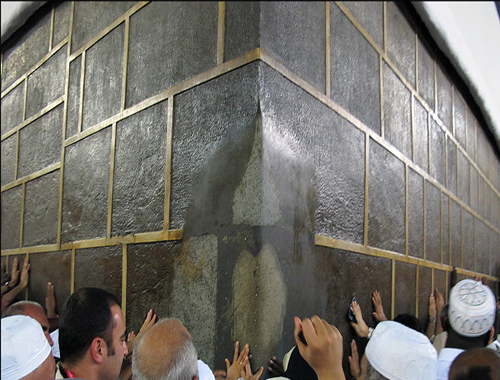We must not accept any honour from oppressors
- Details
- Hits: 2377
We must not accept any honour from oppressors
The most common way of helping the oppressors is to accept some post or position from them, especially if that post is a cause for any type of oppression. For example the post of maintaining law and order. If a person assumes such an assignment from the oppressors and as a result unleashes oppression on innocent people, such an appointment and such an acceptance of the post is a Greater Sin. If as a result of it, innocent people are subjected to hardships, the doer of such actions is sure to have a severe punishment from the Almighty.
There is one very well known tradition of Imam Ja’far as-Sadiq (a.s.) and it is quoted here from Tohful UqÅ«l. Imam Sadiq (a.s.) says:
“The HarÄm post is the post of an oppressive ruler and the posts of those who are busy in the assignments entrusted by the tyrants. Hence it is HarÄm to fulfill the duty of this post. One who takes up this post will become involved in Divine punishment. Whether the job is significant or paltry, any attempt to help the oppressor is a Greater Sin. Because accepting a post from an oppressor will result in the trampling of rights, the manifestation of injustice, the spread of corruption and disturbance, the destruction of heavenly books, the murder of Prophets, the demolishing of mosques and the interpolation of religious laws. Therefore it is HarÄm to work with them. Except when there is a condition of utter helplessness, like when it becomes permissible to drink blood and eat the flesh of dead.”
(Tohful Uqūl)
Imam Ja’far as-Sadiq (a.s.) has also said:
“Those who accept some assignment from the oppressors; the minimum punishment for them on the Day of Judgement would be that Allah would make them stand near fire till He does the accounting of the rest of the people. After that He will decide about them.”
In the last portion of the book DÄrus SalÄm there is an incident concerning Sayyid Muhammad ‘Ali Iraqi. He was one of those who had the honour of seeing Imam az-Zaman (a.s.). He says... “during the time of my youth I was staying in my native village in Iraq. The name of that place was KarharMansÅ«rd. In those days a person whom I knew by his name and lineage passed away and was buried in the graveyard opposite to our house. For forty days, at the time of sunset a fire arose from his grave, and wails and screams were heard. On one of those nights the wailing of that dead man became more intense and I was very much troubled. I became so much frightened that I was trembling uncontrollably as if the punishment was on myself; so much so that I eventually began to lose consciousness. When my friends came to know of my condition they came and carried me to their house and I remained there till I was well again. Afterwards I came to know that the dead man was working in the local court. One day he had demanded some tax from a Sayyid who was unable to pay. This man arrested the Sayyid and locked him up in one of his rooms. He hung him from the ceiling of his house for quite some time. It was due to these deeds that he was punished after death.”
Another similar incident is related by a reliable person that, some time ago there was a person by the name of Ä€qa Muhammad ‘Ali. He was a dealer in perfumes and was also in some way connected with the law courts. He had promulgated an order banning all the people from any kind of trade in perfumes. During that period a Sayyid had some perfume and he sold it to some other trader. When this tyrant came to know of this he met the Sayyid in the market and abused him excessively and even slapped him. In reply to this the Sayyid said, “My ancestors will repay you for this.” When the tyrant heard this he turned back and ordered his slave to catch hold of the Sayyid. Then he beat the Sayyid with a cane saying, “Go and tell your ancestor to cut off my arms.” The very next day this oppressor contracted high fever and his arms began to pain severely during the night. On the third day his arms had swollen terribly and puss began to ooze from them. On the fourth day the surgeons amputed his arms in a way that only the stubs remained. He died on the seventh day.
Therefore, it is important to know that acceptance of an assignment or a post from an oppressor or a tyrant is a great help to that unjust man. And it is impossible for the person who accepts such assignments to remain just and non-violent.
It is mentioned in the Sahih of DawÅ«d bin Zarbi that one of the followers of Imam Sajjad (a.s.) had requested Imam Sajjad (a.s.) to recommend him to the ruler of Madinah, DawÅ«d bin ‘Ali for an appointment in the governmental post. Imam Sajjad (a.s.) replied: “I will never do such a thing.”
On hearing this he thought that Imam (a.s.) was unwilling to recommend him because he might be worried that some injustice would be caused by him. So he approached Imam (a.s.) and began to promise and take oaths that he would never do any kind of unjust act and said that he would not do anything except help the people. Imam (a.s.) looked at the sky and began to weep. Then he said that going to the sky was easier. It was apparent that Imam (a.s.) meant to say that once a person accepts employment of an oppressor it is impossible for him not to oppress.











